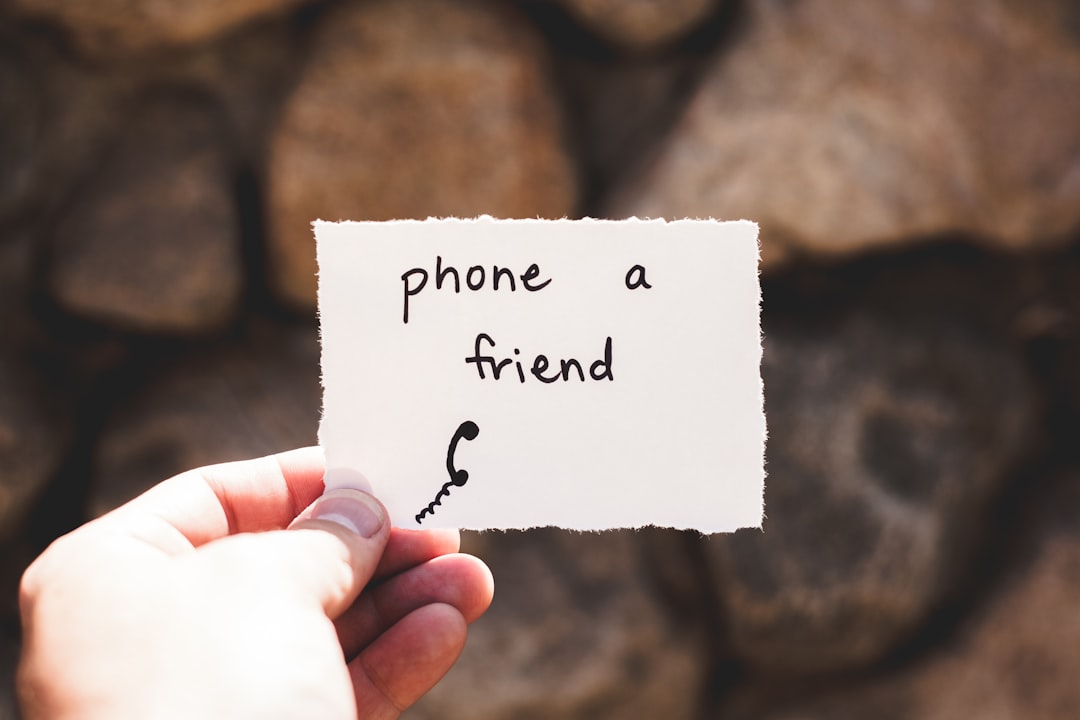Support our educational content for free when you purchase through links on our site. Learn more
29 Psychological Mind Tricks That Will Blow Your Mind! [2024] 🎩✨
Have you ever wondered how some people seem to have an uncanny ability to influence and manipulate others? It’s like they have a secret power that allows them to get What they want effortlessly. Well, we’re here to let you in on the secret: psychological mind tricks! These tricks are based on the principles of human psychology and can be used to your advantage in various situations. In this article, we’ll share 29 mind-blowing psychological tricks that will give you an edge in life. So, get ready to unlock the power of your mind!
Quick Answer
Psychological mind tricks are techniques based on human psychology that can be used to influence and manipulate others. These tricks can help you in various situations, from negotiations to personal relationships. By understanding and applying these tricks, you can gain an advantage and achieve your desired outcomes.
Quick Tips and Facts:
- Psychological mind tricks are not about manipulation or deceit but rather about understanding human behavior and using it to your advantage.
- These tricks can be used ethically and responsibly to improve communication, build rapport, and achieve mutually beneficial outcomes.
- It’s important to use these tricks with caution and respect for others’ boundaries and emotions.
Background: The Power of Psychological Mind Tricks
Sometimes, it might seem like people are going through life with cheat codes — like there are some life hacks the rest of us don’t know about. Especially when it comes to dealing with other people. But the truth is, these people have mastered the art of psychological mind tricks. They understand how human psychology works and use it to their advantage.
Psychological mind tricks are not about manipulation or deceit. They are about understanding human behavior and using it to improve communication, build rapport, and achieve mutually beneficial outcomes. These tricks can be used in various situations, from negotiations and sales to personal relationships and everyday interactions.
In this article, we’ll explore 29 mind-blowing psychological tricks that will give you an edge in life. We’ll dive deep into each trick, providing detailed explanations and examples. So, get ready to discover the power of your mind!
1. The Power of Nonverbal Communication: Nodding Your Head
✅ Have you ever noticed that when you nod your head while speaking, others are more likely to agree with you? It’s a subtle yet powerful psychological trick. When you nod your head up and down slightly while making a point, it signals to the other person that what you’re saying is true or valid. This nonverbal cue can influence their perception and increase the likelihood of agreement.
2. The Uncomfortable Silence: Staring and Staying Silent
✅ When someone is being rude or disrespectful towards you, staying completely silent and staring at them can make them feel incredibly uncomfortable. This psychological trick puts the spotlight on their behavior and forces them to confront their actions. In most cases, they will quickly realize their mistake and start acting more civilly.
3. The Power of Whispering: Lowering Your Voice
✅ Lowering your voice to a whisper can be an effective way to diffuse tense situations. When someone is being loud or aggressive, lowering your voice forces them to subconsciously adjust their volume to match yours. This psychological trick can help calm down the other person and create a more peaceful environment.
4. The Power of Silence: Waiting for a Response
✅ Silence can be a powerful tool in communication. If you want someone to fess up to something or reveal more information, ask a question and then wait in silence. People are often uncomfortable with silence and feel the need to fill it. This psychological trick can prompt them to talk and reveal more than they intended.
5. The Power of Pausing: Creating Agreement
✅ Waiting several seconds or up to a minute before responding to an offer or proposal can increase the likelihood of agreement. Most people dislike uncomfortable silence, especially in negotiations or sales situations. By pausing before responding, you create a sense of anticipation and make your next statement more likely to be agreed upon.
6. The Power of Asking for Explanation: Calling Out Offensive Behavior
✅ If someone makes an offensive comment, asking them to explain what they mean can be an effective way to address the issue. This psychological trick puts the person on the spot and makes them feel awkward and ashamed. It also brings attention to their offensive behavior, making it less likely to happen again.
7. The Power of Guided Conversations: Walking Someone Back
✅ If someone is bothering you at your desk or in a conversation, a psychological trick is to continue the conversation but walk them back to their desk or designated area. This subtle action redirects their attention and creates a natural end to the interaction. It’s a trick often used by skilled communicators to politely disengage from unwanted conversations.
8. The Power of Showing Interest: Asking Personal Questions
✅ People love talking about themselves. If you want to discourage coworkers or others from prying into your personal life, ask them questions about their own lives and act genuinely interested in their responses. By redirecting the conversation towards them, you create a psychological extension where they feel comfortable sharing information without prying into your personal affairs.
9. The Power of Unrealistic Examples: Getting Specific Information
✅ If someone is reluctant to give you specific information, such as tuition costs or expected hours, provide them with an example that is completely unreasonable. This psychological trick often prompts them to immediately provide you with an exact number and feel embarrassed for pretending not to know.
10. The Power of Mind Games: Creating Anxiety
✅ In a competitive environment, if you notice that your opponent is a beginner or showing signs of anxiety, ask them if they’re nervous while acting nonchalant. This psychological trick can get inside their head and affect their performance. It’s a common tactic used in sports and competitive games to gain a mental advantage.
11. The Power of Pre-Framing: Making Favors Seem Bigger
✅ If you want someone to help you or do you a favor, make the favor seem bigger than it actually is before asking for it. This psychological trick creates a sense of obligation and makes the person more likely to agree. By framing the favor in a way that highlights its importance, you increase the chances of getting a positive response.
12. The Power of Small Favors: Building Rapport
✅ Benjamin Franklin once suggested that if someone seemed cold towards you, ask them for a small favor. By doing so, you create an opportunity for cooperation and build rapport. This psychological trick can help break the ice and warm up relationships.
13. The Power of Inclusive Language: Shifting Perspectives
✅ When trying to persuade or influence others, using inclusive language that emphasizes “we” instead of “I” can create a sense of unity and alignment. This psychological trick makes people more likely to align themselves with your point of view and be receptive to your ideas.
14. The Power of Mirroring: Building Rapport
✅ Mirroring is a powerful psychological technique that involves subtly imitating the behavior, body language, and speech patterns of the person you’re interacting with. This trick creates a sense of familiarity and comfort, making the other person more likely to trust and connect with you.
15. The Power of Guiding Mood and Behavior: Leading by Example
✅ You can subtly guide someone’s mood and behavior by starting out mirroring them and then adjusting your tone and energy. This psychological trick is particularly effective in therapeutic settings, where therapists use it to establish rapport and create a calming atmosphere.
16. The Power of Predictable Patterns: Exploiting Human Behavior
✅ Humans have predictable patterns when it comes to making choices. For example, when asked to pick a random number between 1 and 10, many people choose 3 or 7. By understanding these patterns, you can use them to your advantage. This psychological trick can be applied in various situations, from board games to decision-making processes.
17. The Power of Selective Correction: Choosing Your Battles
✅ Not every mistake or incorrect statement needs to be corrected. Sometimes, it’s better to let it slide and avoid embarrassing or belittling the other person. This psychological trick is about choosing your battles wisely and focusing on what truly matters.
18. The Power of Honesty: Building Trust
✅ Admitting your mistakes and taking responsibility for them can actually make you more trustworthy. This psychological trick shows that you are honest and accountable, which can strengthen your relationships and reputation.
19. The Power of Priming: Setting the Stage
✅ If you want someone to agree with your current proposal, start the conversation by reminding them of past occasions when you cooperated to achieve a common goal. This psychological trick primes them to be more favorable towards your idea and increases the chances of agreement.
20. The Power of Ownership: Making Ideas Their Own
✅ People are more likely to support and be favorable towards ideas that they believe are their own. This psychological trick involves subtly guiding the conversation and allowing the other person to come up with the idea themselves. By doing so, you increase their sense of ownership and commitment to the idea.
21. The Power of Open-Ended Questions: Encouraging Disclosure
✅ Asking the question “Is there anything you need to tell me?” and then remaining silent or leaving the room can be a powerful psychological trick. This trick works on both kids and adults and often prompts them to reveal information they might have otherwise kept hidden.
22. The Power of Presumed Truth: Letting Others Conclude
✅ One way to tell a lie without getting caught is to let the other person come to their own conclusion and then agree with it. This psychological trick takes advantage of the presumption of truth and decreases the chances of being caught in a lie.
23. The Power of Gratitude: Shifting Focus
✅ Instead of apologizing for a mistake or inconvenience, express gratitude by saying “Thank you for your patience” or a similar phrase. This psychological trick removes the blame from you and makes the other person feel better about the situation.
24. The Power of Focus: Looking Ahead
✅ When walking in a crowded area, focus on where you’re going instead of looking at other people. This psychological trick subtly signals to others that you have a clear direction, causing them to naturally move out of your way.
25. The Power of Excitement: Creating Attraction
✅ If you’re going on a second or third date, try doing something scary or thrilling together, like visiting a haunted house or going on a roller coaster. This psychological trick can create a sense of excitement and adrenaline, which can be easily confused with attraction.
26. The Power of Autonomy: The Illusion of Choice
✅ The illusion of choice is a psychological trick that gives the other person a sense of autonomy while still getting what you want. Instead of asking a yes-or-no question, give them options that both lead to your desired outcome. This trick can be used in various situations, from sales to negotiations.
27. The Power of Suggestion: Influencing Behavior
✅ People are more open to suggestion than you might think. By understanding the subtle cues and triggers, you can influence their behavior and make them more likely to do what you want. This psychological trick can be used ethically and responsibly to achieve positive outcomes.
28. The Power of Sunk Cost: Letting Go
✅ Sunk cost is a psychological effect that causes people to factor in past investments of time, effort, or money when making decisions. However, this trick can also lead to irrational decision-making. By recognizing the sunk cost fallacy, you can avoid getting trapped in unproductive or unsatisfying situations.
29. The Power of Randomness: The Unexpected Offer
✅ Sometimes, the simplest psychological tricks can be the most effective. Just sticking your hand out to give someone a random item can often lead them to take it. This trick plays on people’s curiosity and the unexpected nature of the offer.
Conclusion
In conclusion, psychological mind tricks are powerful tools that can help you navigate various situations in life. By understanding human psychology and applying these tricks ethically and responsibly, you can improve your communication skills, build rapport, and achieve your desired outcomes.
Remember, these tricks are not about manipulation or deceit. They are about understanding and connecting with others on a deeper level. Use them with caution and respect for others’ boundaries and emotions.
So, go ahead and experiment with these mind-blowing psychological tricks. Unlock the power of your mind and watch as you gain an edge in life!
Recommended Links
Reference Links
Remember, the power of psychological mind tricks lies in your ability to understand and apply them effectively. Use them responsibly and always consider the well-being of others. With these tricks in your arsenal, you’ll be able to navigate social interactions with confidence and achieve your desired outcomes. So go forth and unlock the power of your mind!






